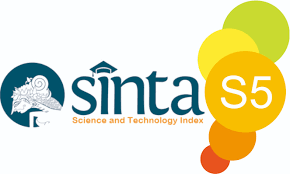Model Blended Learning & Hybrid Learning Untuk Keberhasilan Transformasi Digital Menuju Smart Society
Abstract
The purpose and objective of this research is to find out and explain the application of blended learning
models and hybrid learning methods in universities as an effort to help realize digital transformation
towards a smart society. To answer the problem of the readiness of human resources, who should
prepare them, and how to prepare them, so that the digital transformation process can run as desired
together. A qualitative descriptive analysis has been carried out based on CMC cyberspace theory,
digital transformation and the concepts of blended learning and hybrid learning. to explain the results
of observations and interviews with lecturers from 4 state universities and 30 students from 2 private
universities in Jakarta, online during the even semester 2021 lectures. The results reveal that the online
lecture process is not fully reliable for realizing digital transformation, but rather a system that is able
to combine (Blended) all teaching methods both offline and online (hybrid) in the learning process in
higher education. And for its implementation, it requires high integrity, dedication and self-motivation
from both students and lecturers. Research data shows that 35% of students are quite excited to do
online learning, but 65% of students have become bored. And when asked to choose, 70% of students
still want offline learning. Conclusion The success of digital literacy in society starting from universities
through the application of blended learning models and hybrid learning methods is an indicator of the
running of the digital transformation process which is expected to lead to the development of the
community's ability to adapt and become part of a smart society civilization




